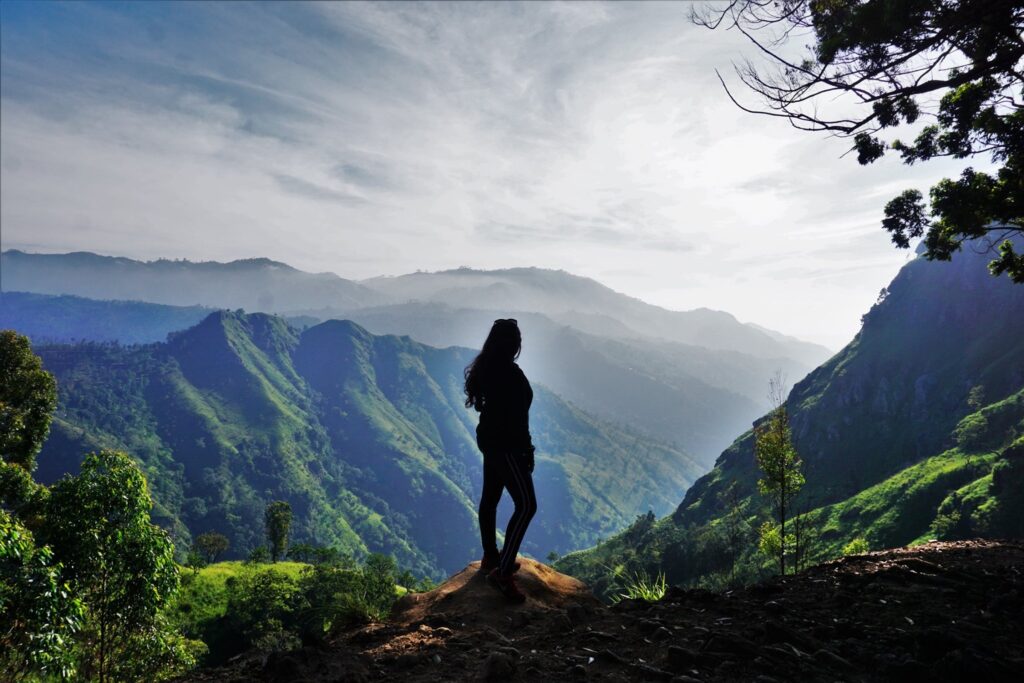Trading sun-kissed safaris for rain drenched adventures, I travelled to Wilpattu in the monsoon season in December 2023. Travelling to Sri Lanka’s largest national park in the monsoon often sparks doubts among fellow travellers- could a wildlife safari during the downpours truly be thrilling? Yet, my adventure in Wilpattu with friends defied expectations, as a different kind of beauty unfolded beneath the grey skies. Come rain or shine, Wilpattu’s magic extends far beyond the thrill of spotting leopards. From hidden lush paddy fields overflowing with life to sharing a steaming authentic Sri Lankan meal with welcoming villagers, this wasn’t just a trip, it was an experience that seeped into my soul. Wilpattu deserves a place on everyone’s adventure bucket list, because it guarantees stories that will stay with you forever. So, let me share mine.
Opting to travel to Wilpattu in the monsoon season revealed its perks. The national park was free from the usual tourist crowd. However, heavy rain greeted us upon our arrival, harbouring concerns that we may not be able to spot many exciting wildlife sightings, let alone go on safari. Nestled just outside Wilpattu park, our haven for the next two nights was a quaint sustainable guesthouse run by locals.
COME RAIN OR SHINE, THE WILDLIFE AWAIT!
The following morning was bright and sunny, washing away our doubts of heavy showers. We embarked on the safari at 6 a.m. in a 4×4 open-sided safari jeep. However, the aftermath of heavy rains in the previous days left its mark. The jeep lurched and skidded on trails transformed into muddy rivers and the serene Wilpattu tanks inside the park resembled overflowing bowls.
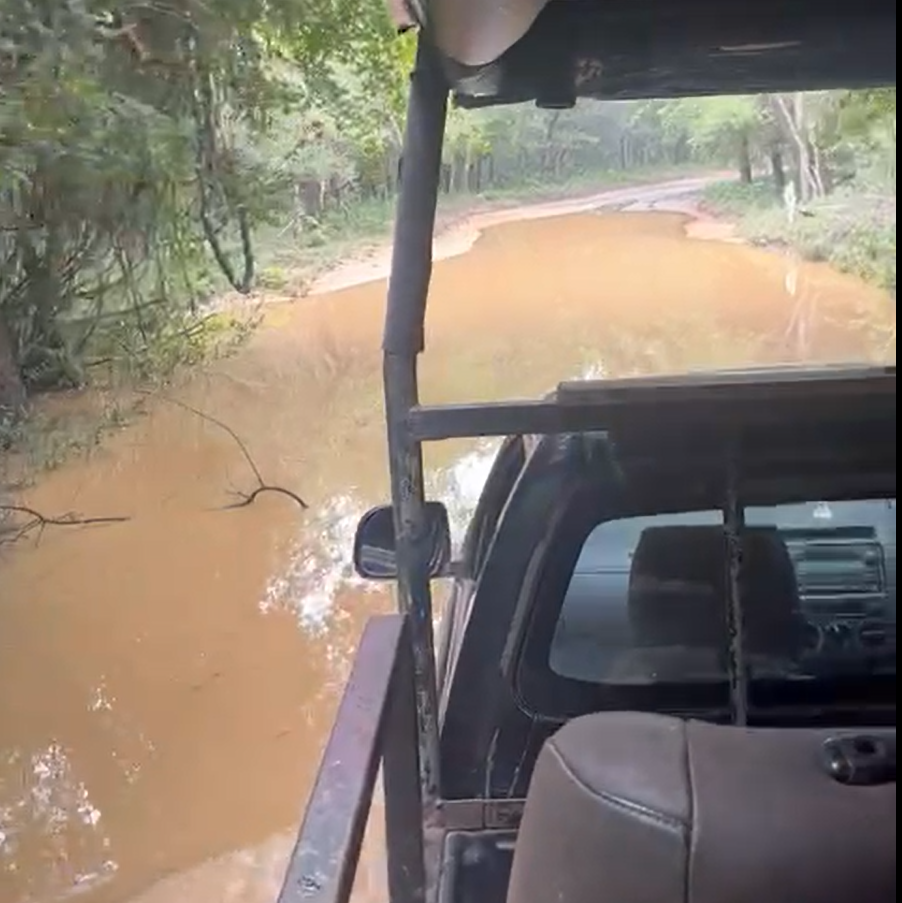
Despite the lingering gloomy skies, the wildlife inside the park was thriving. We spotted a curious sloth bear digging for termites, a crested serpent eagle perched high in a tree and several deer. Each encounter fueled our anticipation to spot the endemic Sri Lankan leopard – the ultimate wish for any wildlife enthusiast visiting Wilpattu.
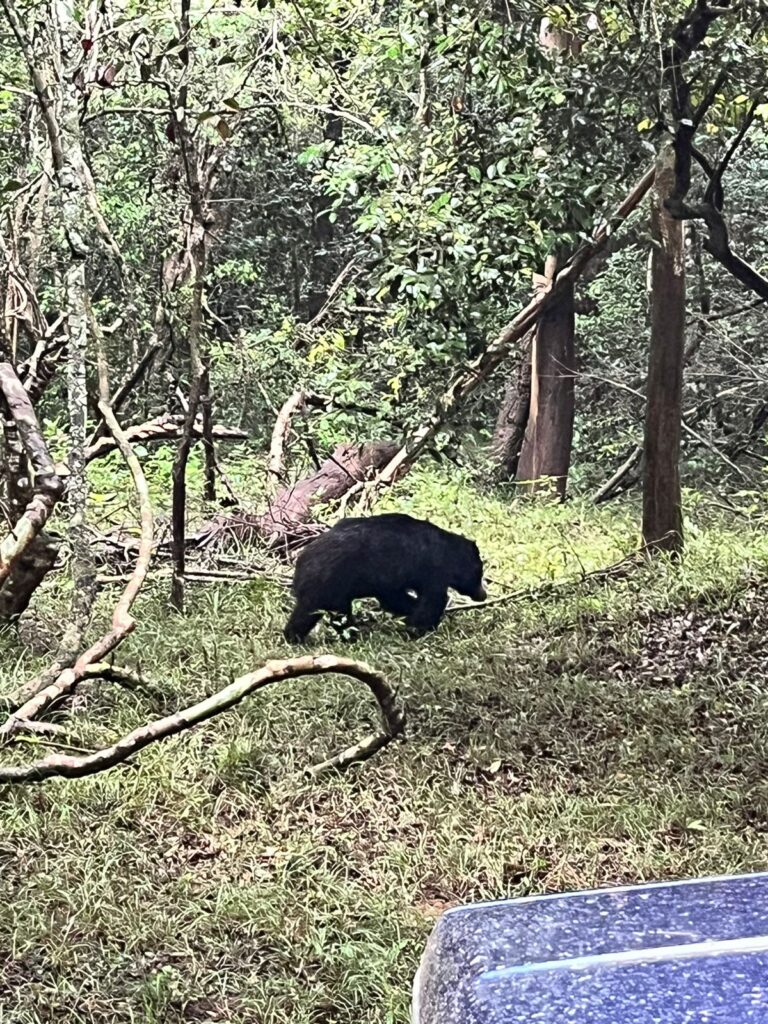
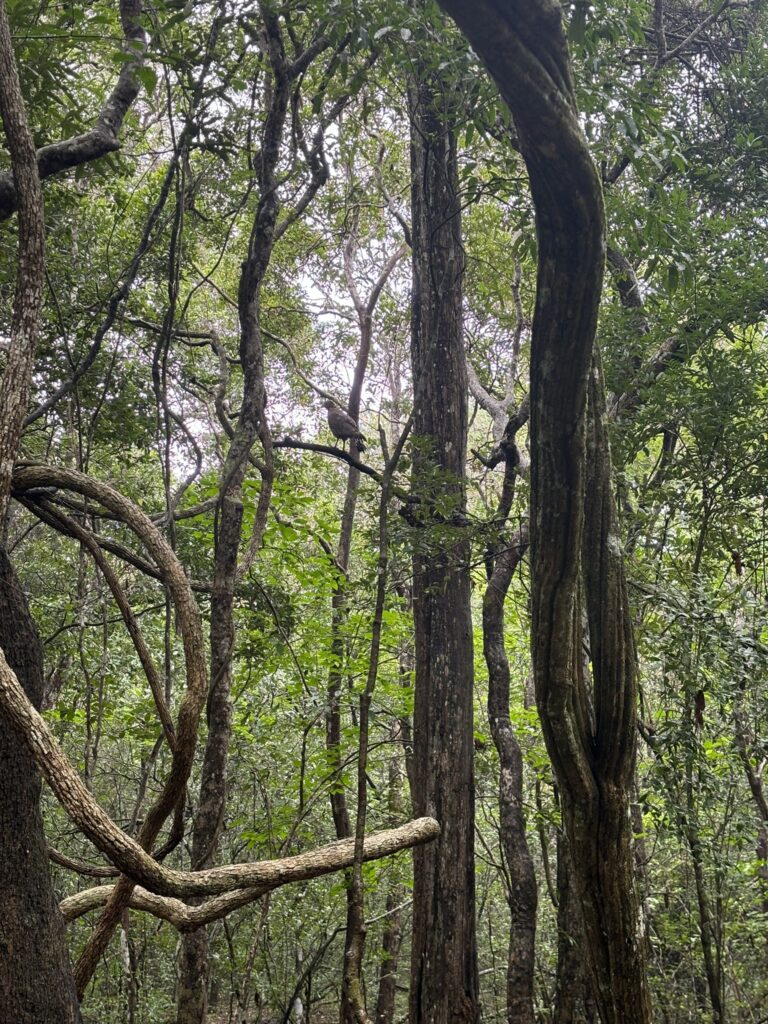
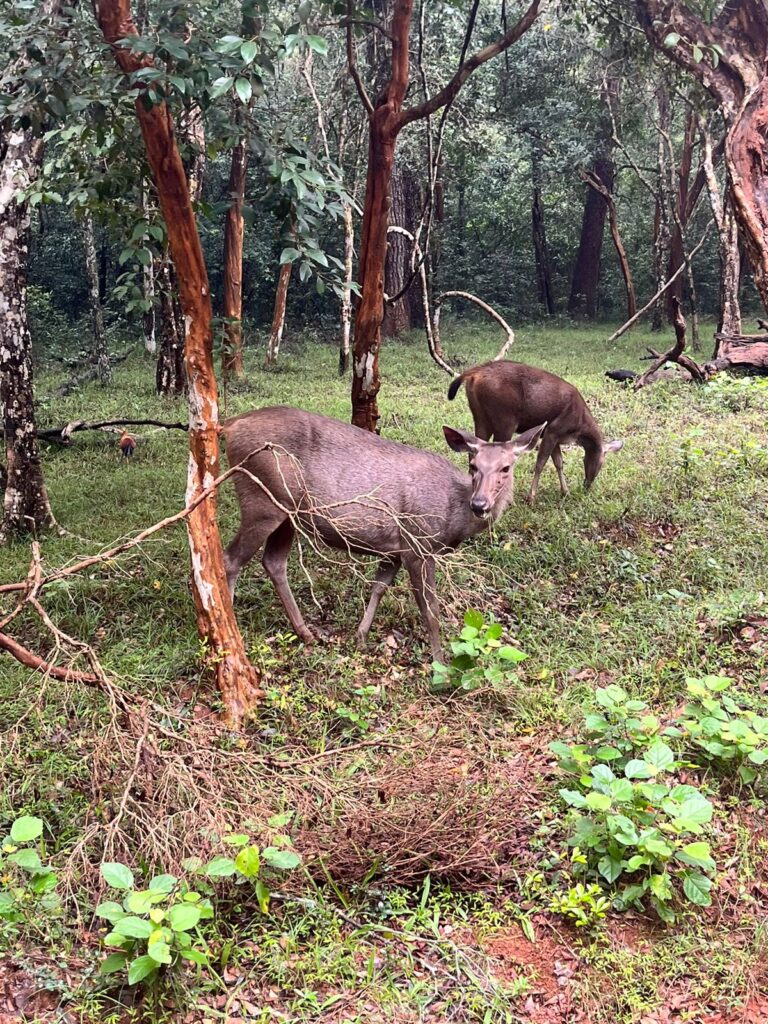
NAVIGATING ETHICAL DILEMMAS IN WILPATTU
An hour in to the game drive, the sight of a cluster of jeeps in the distance signaled that a leopard had been spotted. Responding to the cue, our driver hurriedly steered our jeep through the dense foliage towards the gathering. Yet, what unfolded was a chaotic scene—a flurry of vehicles swirling in circles, each vying for the perfect view. Wildlife enthusiasts armed with their DSLR cameras and phones eagerly competed, all seeking to capture the napping beauty, “Cleo” the leopardess. Disturbed by the rumble of engines, Cleo vanished into the thick bushes, in search of solace.
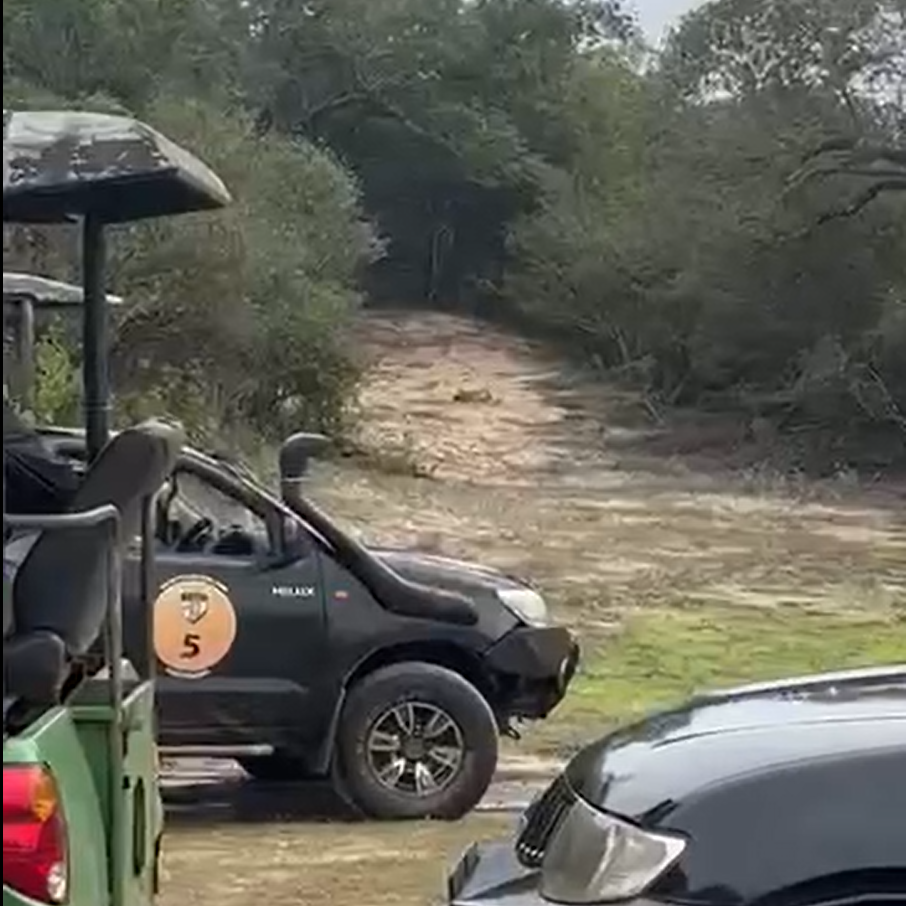
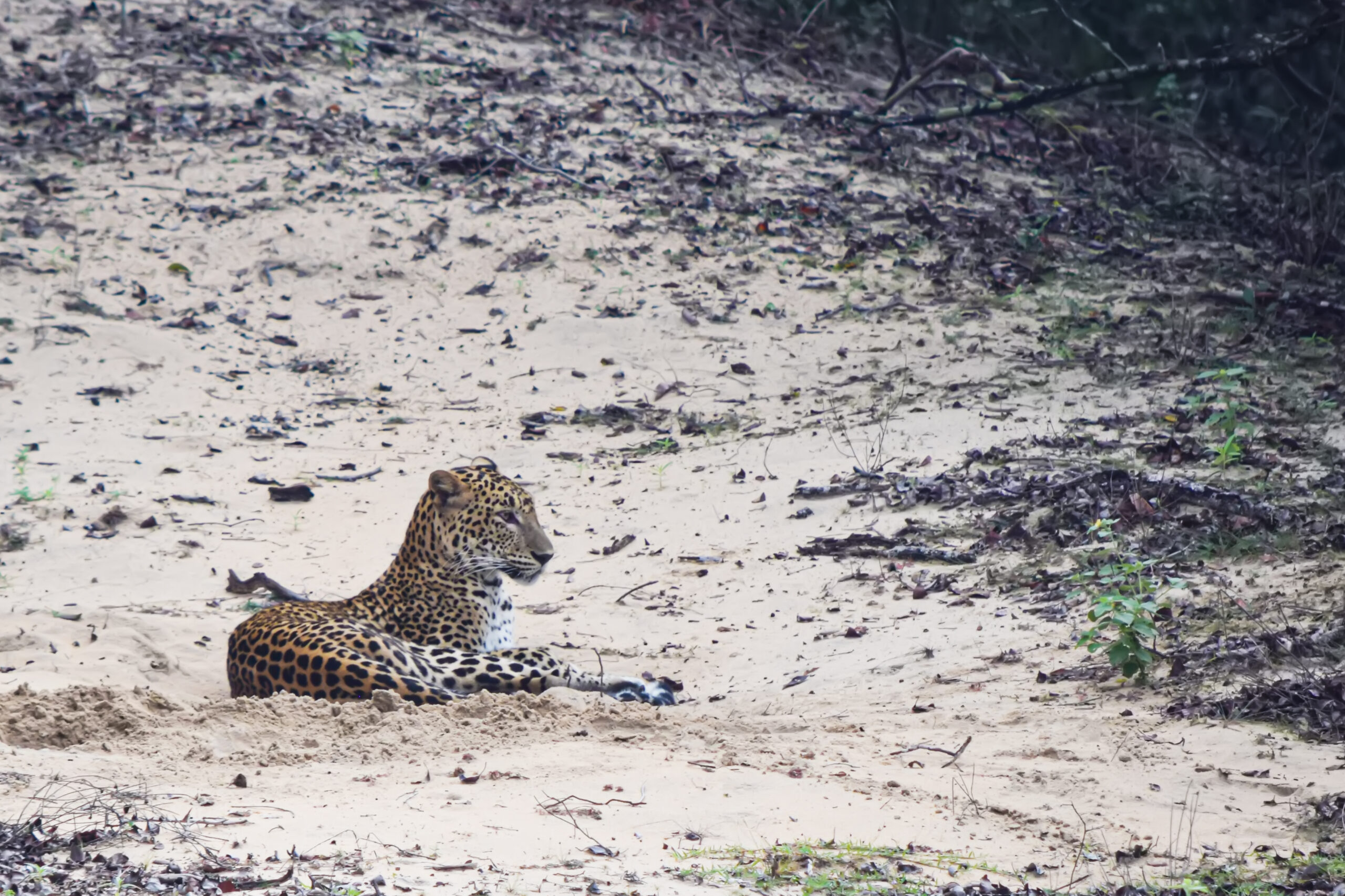
While the thrill of spotting leopards captivated me, I couldn’t ignore the ethical implications of our presence in their habitat. Was this the price of witnessing nature’s wonders? Was I, in my pursuit of a fleeting thrill, contributing to the very thing I sought to appreciate – the delicate balance of this ecosystem? Considering this happened in the off-season, one can only imagine the potential influx of vehicles during the peak Wilpattu season! It dawned on me that we, as travellers, hold the power to choose experiences that respect both wildlife and the delicate ecosystem they call home.
COCONUT-INFUSED DELIGHTS
Following the eventful safari, dusk painted the sky in hues of orange and purple as we returned to the guest house. The aroma of spices and coconut wafted from the kitchen while we eagerly anticipated to have dinner. Our meal featured white string hoppers, pol (coconut) roti, pol sambol, parrippu (lentil curry), potato curry and chicken curry. We paired the feast with some red wine and the finest local beer, chilled ‘Lion Lager’. As we clinked our glasses, we heard distant echoes of gunshots fill the air to prevent elephants from encroaching on the surrounding farmlands – a reminder of the ongoing human-elephant conflict in Sri Lanka.
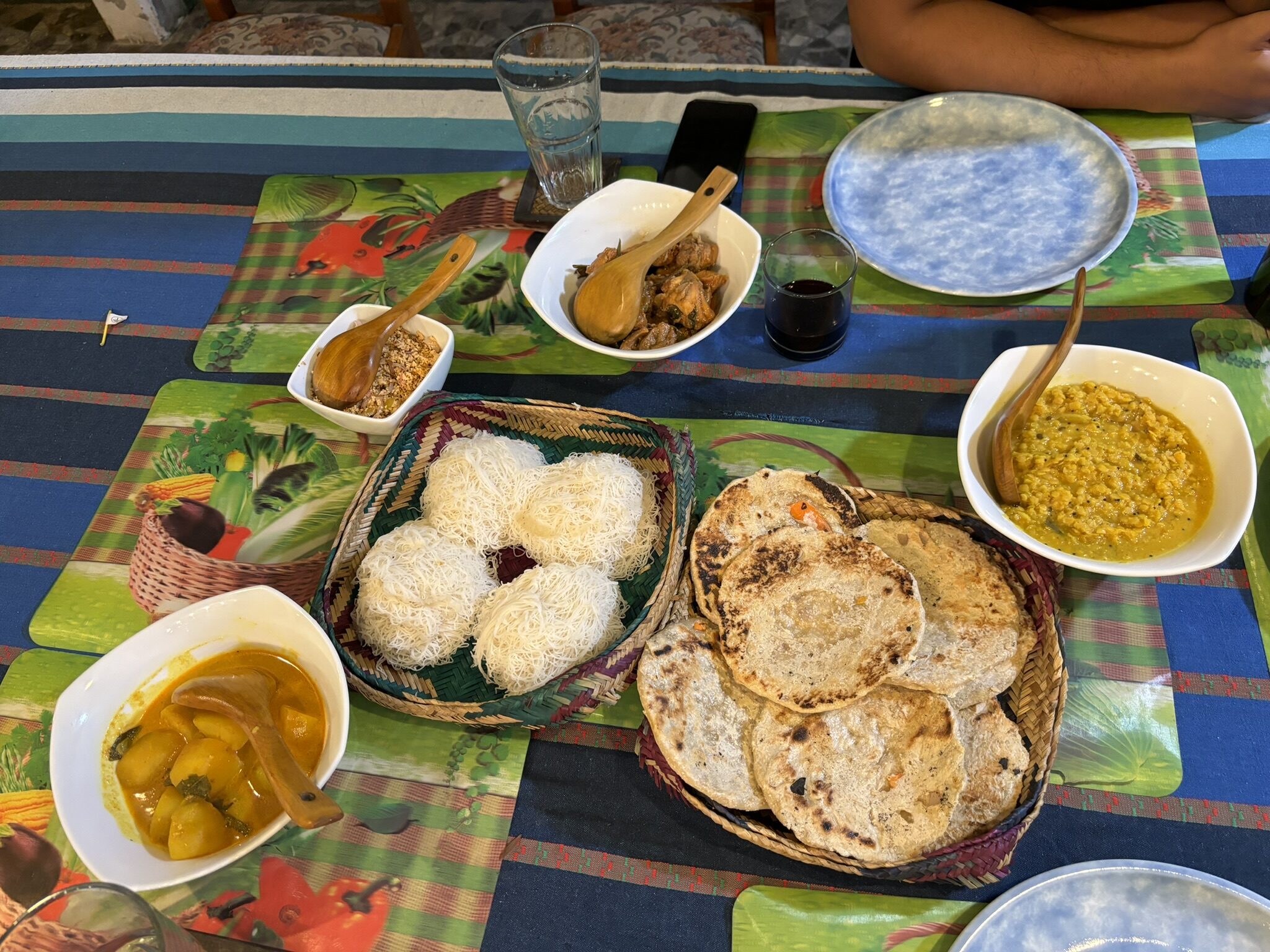
OFF-BEAT DISCOVERIES IN WILPATTU
Excited for a change of scenery, the next morning, we decided to explore the Wanamalgama village nestled amidst lush green paddy fields. This was the untamed beauty of rural Sri Lanka, a tapestry woven from vibrant colours and the gentle hum of daily life.
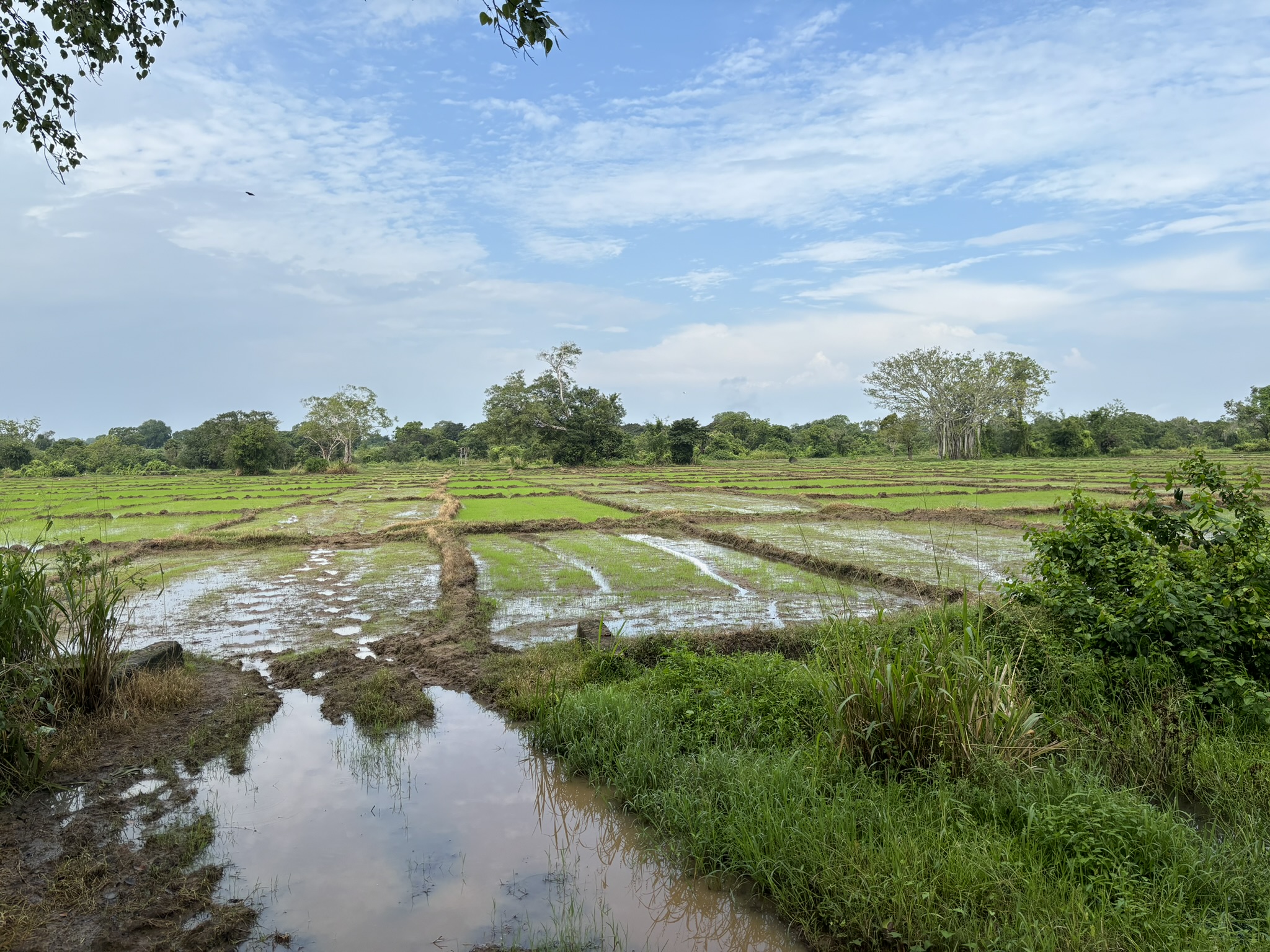
Despite the looming gloomy weather, our adventure of exploring off-the-beaten paths continued well into the afternoon. A bush walk guided by some locals in the village revealed more lush, rain-washed greenery around one of the many Wilpattu tanks- Walantelu wewa.
OBSTACLES AND STORIES OF RESILIENCE
The wind carried the scent of rain-washed earth, and the only sounds were the rustling of leaves and the distant calls of unseen birds. The friendly locals kept us entertained with their stories of elephant encounters, lost harvest, damaged homes and their efforts to coexist peacefully. It was a reminder of the shared vulnerability and the need for better solutions.
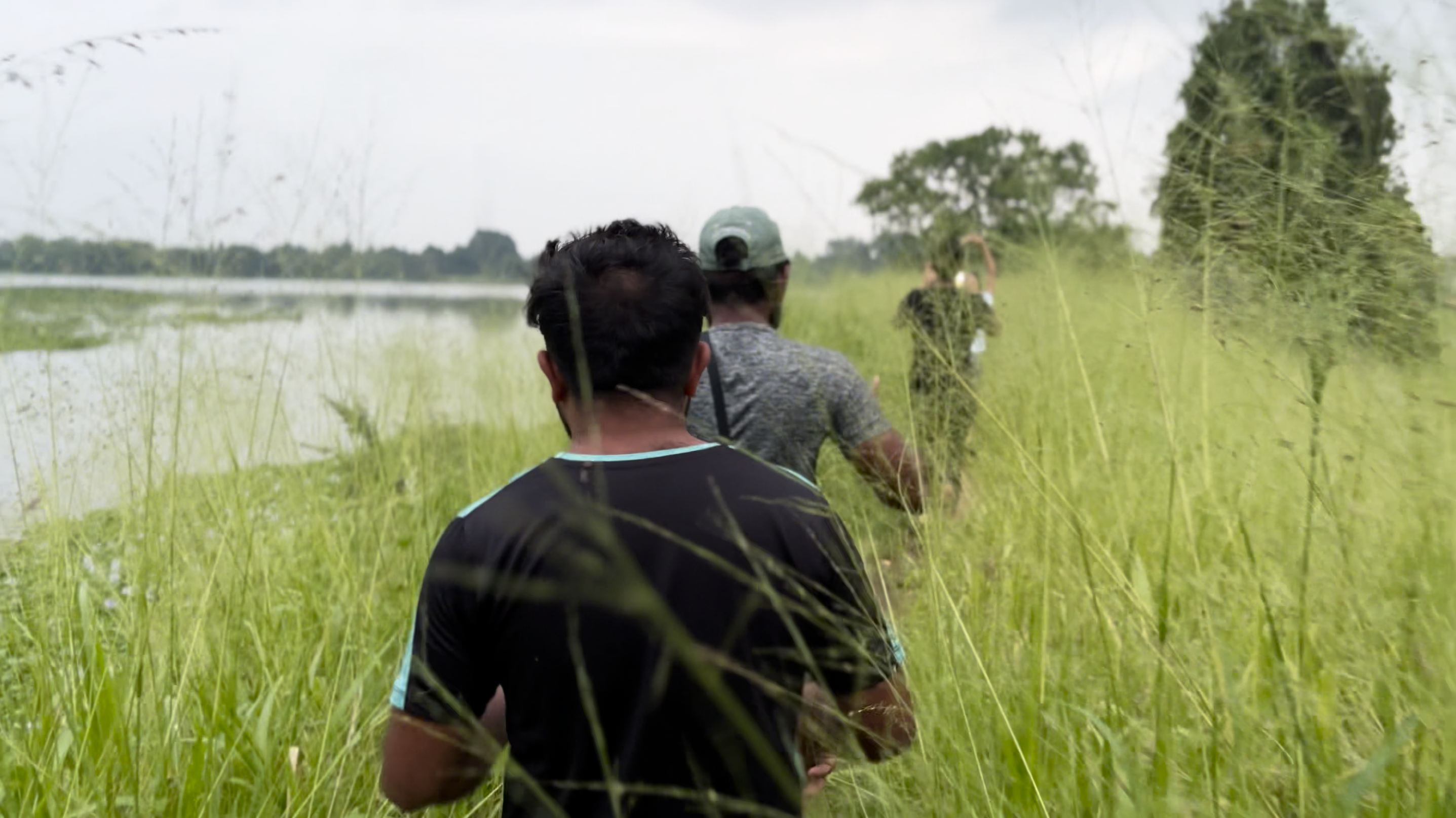
While aimlessly wading through tall grass, we unexpectedly came across a mini dam. Returning to our guest house felt safe at this point, but the locals assured us that crossing the dam wouldn’t be as daunting: “just a little hop, miss! Nothing to fear.” The murky water, crept up my ankles, urging me to remove my white shoes (what was I thinking?) My toes sank into the squelching mud filled mushy grass. It felt unnerving as I painted vivid scenarios of lurking baby crocodiles in my head. Nevertheless, I was determined to walk across to see what was waiting on the other side.
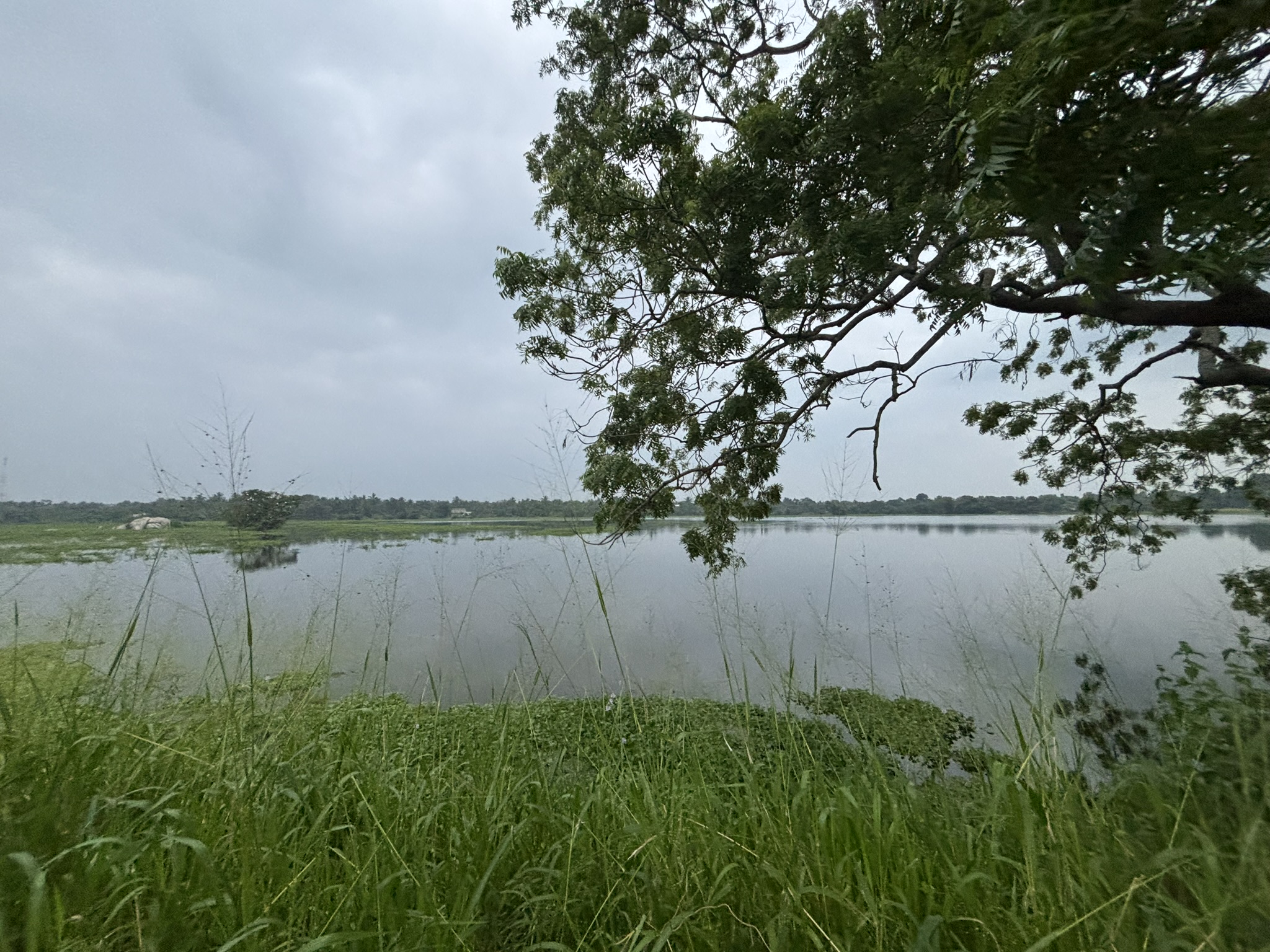
A WHOLESOME FIREWOOD BREAKFAST
From conversation to connection, the friendly locals welcomed us to their farm the next morning for an authentic Sri Lankan meal. The breakfast, cooked on a firewood stove beneath a thatched roof mud hut, featured freshly boiled fluffy manioc (cassava), paired with fiery kocchi (bird eye chili) pol sambol and smoky karawala (dehydrated fish) curry. I hadn’t realized such a delightful combo existed in my homeland. It was an absolute treat for the taste buds!
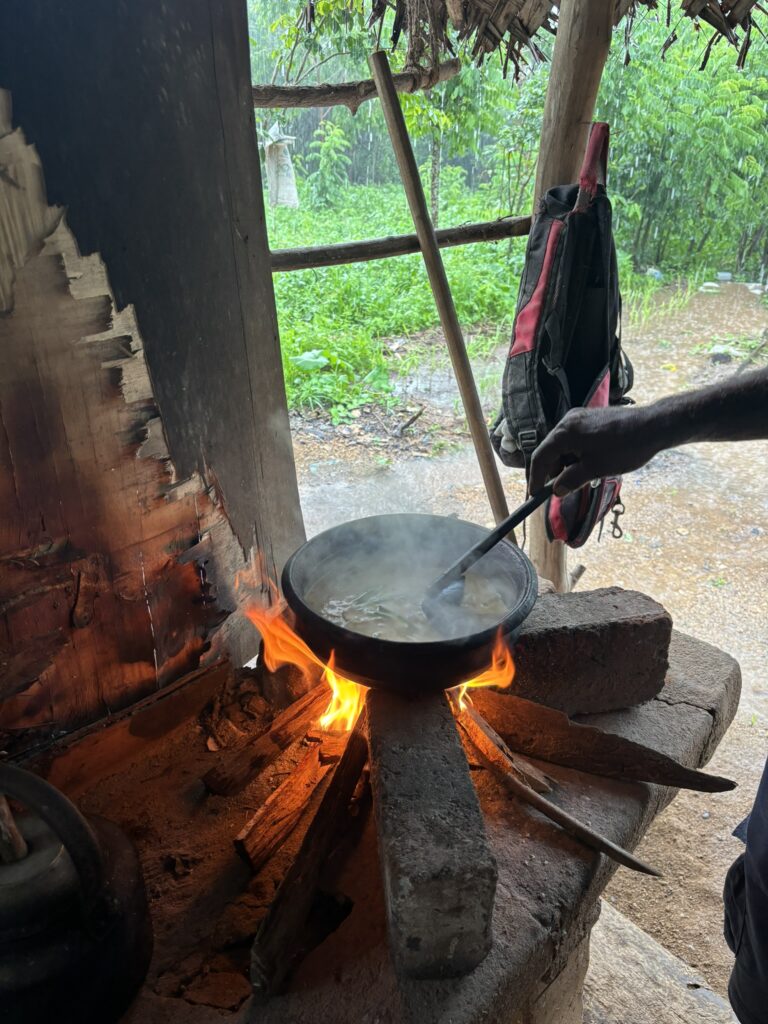
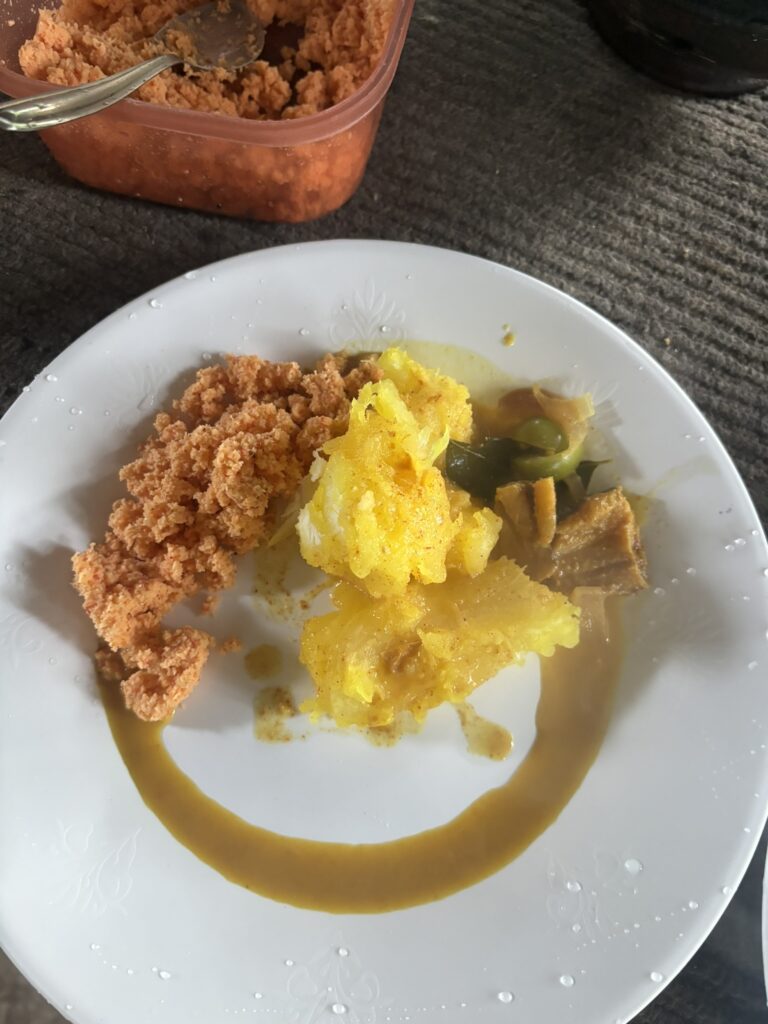
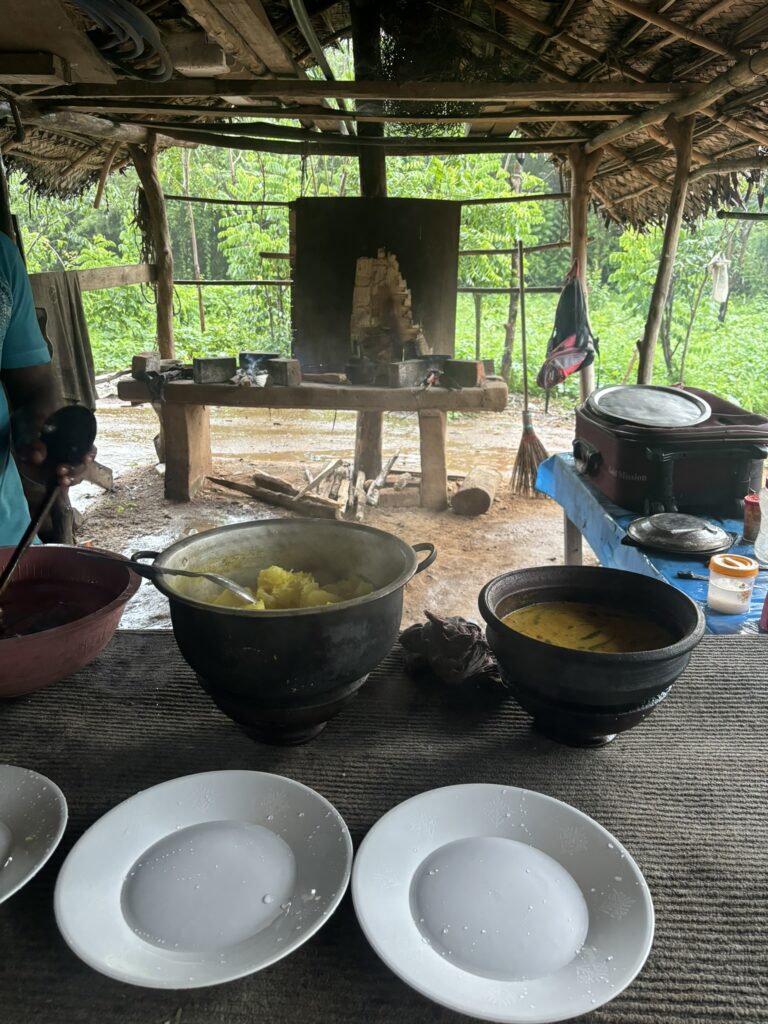
As we enjoyed the feast, the locals apologised for the lack of comforts we might be accustomed to at home. Little did they know that the simplicity of their surroundings brought me immense joy. While I am aware of the hardships facing rural communities in Sri Lanka, especially in the aftermath of the Sri Lanka 2021 economic crisis, this experience ignited a deep appreciation for the breathtaking beauty of nature, the diverse wildlife, the nourishing abundance of healthy food, and the unmatched hospitality of Sri Lankans. Our hearts were full from the delightful meal, but more importantly, with the enriching experience.
Wilpattu left an indelible mark on my soul. I returned back to Colombo not just with memories, but with a renewed commitment to conscious travel. This trip made me realize that every future journey would be an opportunity to connect deeper, tread lighter, and embrace the magic of the unexpected.

